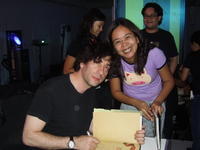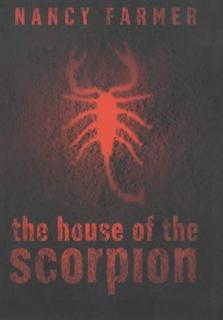The UNITED FEDERATION of PLANETS was Gene Roddenberry’s vision of the future. In the Star Trek Universe, the United Federation of Planets was founded as a peaceful collaboration of many planetary governments, dedicated to peaceful acquisition of knowledge, technologies, and better living. The Federation seeks out new civilizations, in hopes of establishing peaceful contact, and developing a relationship which is prosperous to both.
(http://www.lbow.com/ufp.htm)
It was a vision of Utopia, Earth on which UFP and Starfleet Headquarters are found, maintains a "moneyless" society. In "Star Trek: First Contact," when asked by a woman from the "past" how much the ship had cost, Captain Picard tells her: "The economics of the future is somewhat different. You see, money doesn't exist in the 24th century... The acquisition of wealth is no longer the driving force in our lives. We work to better ourselves and the rest of humanity."
But as the different series progressed, we saw the flaws in vision of utopia. “The Federation is just like the Borg.” Starfleet officer turned Maquis Lt. Com. Eddington said to Capt. Sisko. The Commander said that the Federation “forced” it’s people to follow its beliefs and principles and if you do not abide by these, you are isolated or they send Starfleet after you. In Encounter at Farpoint, Picard proudly defended humanity saying that discrimination, war, and greed were in the past. But as the story of Star Trek unfolded we began to see that maybe the intolerance and discrimination and greed –the most common root causes of conflict – are just laying dormant.
We have seen intolerance and discrimination in the Star Trek – Worf and B’elanna both experienced cruel teasing from human children because of how they looked. In the first episode of ST VOYAGER, Quark hinted that Ferengis are discriminated against by Federation people. In “Let the one without sin” in Deep Space 9 where Worf and Dax encountered “Federation Fundamentalists” who condemned the culture and lifestyle of Risa and any being who come to enjoy the culture and lifestyle of Risa.
In Paradise, is discrimination only lying dormant or is it just a pink elephant in the room that no one wants to acknowledge? Is the fault in human (or any other species) nature?
“You lack harmony, cohesion, greatness. It will be your undoing.”
- Seven of Nine, Scorpion Part 2
Seven, or the Borg’s analysis of the human condition was unforgivably blunt. An analysis that would trigger a reaction to any humanoid specie with a society based on individual thinking. But is it not strange that “harmony, cohesion, greatness” are what humanity strives for? Isn’t “harmony, cohesion, greatness” words that would describe peace and progress?
Seen from a different point of view, Borg society is a form of “utopia” – there is no disease, hunger, greed, poverty – all of which are causes of great wars, deaths, and social problems. Moreover, in the Borg, there is no loneliness or depression – for some individuals being alone is the worst fate there is. When Seven of Nine was initially disconnected from the Collective she almost lost her sanity because she felt so alone – one voice, one mind. In the episode “Survival Instinct” she did what she could in order to maintain a Collective because she could not stand to be alone. In “Homecoming” – the novel about Voyager’s well, homecoming, a human attempted to start a new collective because she felt abused and alone. The Queen found comfort among her drones who loved her back.
Star Trek was hailed by many because of it's belief in humanity's goodness and potential in the midst of science fiction that focuses on how foolish and selfish we are- and how these would lead to our ultimate distruction. But now Star Trek brings up the question that no matter how bright the dream of utopia is, how well planned and organized - human nature is still the biggest obstacle.

 on my Marvel 1602.
on my Marvel 1602.




